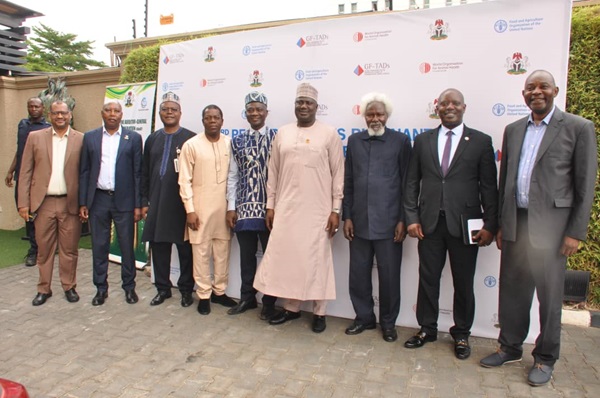
The Federal Government, in collaboration with its development partners in the livestock industry, has developed strategies for the control and eradication of Peste des Petits Ruminants (PPR) in Nigeria.
This move is part of the bid to improve the livestock sub-sector, foster economic growth, enhance food security and improve the livelihoods of all Nigerians,
Speaking during the 3rd PPR Roadmap and Blueprint Meeting for West African countries held recently in Abuja, the Minister of State for Agriculture and Food Security, Dr. Aliyu Abdullahi, CON, highlighted that PPR, also known as ‘sheep and goat plague’, is a highly contagious viral disease affecting small ruminants. This disease causes significant economic losses and threatens the livelihoods of millions of rural families in West Africa.
Abdullahi emphasised that the impact of PPR extends beyond animal health, affecting food security, economic stability, and the overall well-being of communities, particularly the most vulnerable populations. He noted that the continuous presence of PPR severely constrains the production, trade, and marketing of sheep and goats, limiting productivity and market access.
“The eradication of PPR and other transboundary animal diseases (TADs) is a critical component of the current administration’s agenda,” Abdullahi stated. “Eliminating the disease will not only protect our livestock but will also empower rural communities and contribute to the nation’s economic resilience.”
Abdullahi reported that since the inception of the PPR Global Eradication Programme, the ministry has developed a PPR strategy for control and eradication in Nigeria. Nationwide socio-economic impact assessments and prevalence studies have been conducted, and over 12.5 million doses of PPR vaccine have been procured and deployed for vaccination campaigns. Additionally, laboratory diagnostic capacity has been enhanced, with plans to vaccinate 75 percent of sheep and goats against PPR in the coming years.
However, the minister acknowledged challenges such as funding gaps, logistical hurdles in reaching remote areas, and the need for continuous training and capacity building for the veterinary workforce. To address these challenges, he called for the strengthening of regional and international partnerships and, as well as mobilisation of necessary resources to support eradication efforts. “Cross-border collaboration remains critical to make meaningful progress,” he added.
Abdullahi urged all participants to actively engage in discussions, share insights and collaborate on innovative solutions. He stressed that the roadmap and blueprint for PPR eradication would require meticulous planning, robust implementation, sustained stakeholder commitment and effective cross-border collaboration with neighboring countries.
In his welcome address, the FAO Representative AD Interim in Nigeria and ECOWAS, Koffy Dominique, represented by Dr. Otto Vianney Muhinda, stated that the meeting provided a crucial forum to enhance coordination among countries to accelerate progress towards PPR eradication. He highlighted that the second phase of the PPR Global Eradication Programme (PPR GEP Blueprint) was launched in November 2022 by FAO, WOAH and partners at the FAO headquarters in Rome. The Pan-African Programme for the Eradication of PPR (2023-2027) was also recently endorsed and launched by Ministers in charge of Animal Resources Development.
The FAO representative added that both PPR GEP BP and the Pan-African Strategy recognise that progress towards PPR eradication, veterinary services strengthening, and a more productive small ruminant sector rely on strong strategic partnerships with regional organisations and Regional Economic Communities. These entities must provide regional ownership, leadership, collaboration and coordination.
A statement by the ministry’s director of information, signed by Mrs. Anthonia Eremah noted that various stakeholders in the livestock sector attended the meeting, including representatives from GF-TADs, the Food and Agriculture Organisation of the United Nations (FAO), the World Organisation for Animal Health (WOAH), among others.


